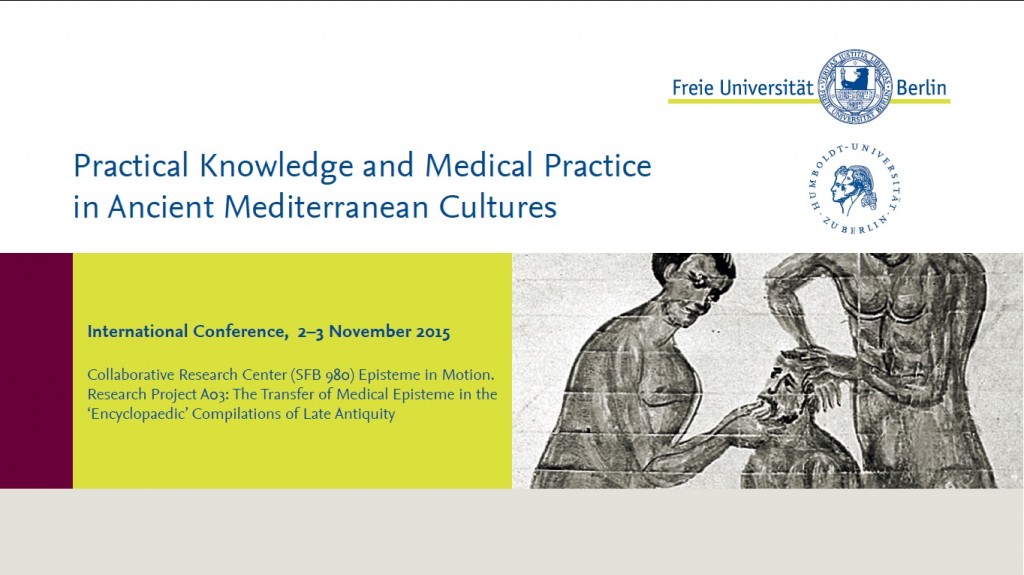 Conférence internationale
Conférence internationale
Practical Knowledge and Medical Practice in Ancient Mediterranean Cultures
Berlin, 2-3 November 2015
The Project A03 (“The Transfer of Medical Episteme in the ‘Encyclopaedic’ Compilations of Late Antiquity”), as part of the SFB 980 « Episteme in Motion », is organizing an international conference on the topic of practical knowledge and actual practices in medical traditions of different ancient cultures. The heads of project, Prof. Philip van der Eijk and Prof. Markham J. Geller, welcome speakers from the US, the UK, Europe and Germany who will address in multi-discipline presentations the different healing practices (diagnosis, bloodletting, surgery and other forms of treatment, incantations) and the role of the “practitioners”. Furthermore, the papers will shed light on the ways in which this practical medical knowledge was gained and transferred via experts, institutions and procedures.
A detailed description and the conference programme are published online at the SFB webpage:
http://www.sfb-episteme.de/en/veranstaltungen/Vorschau/2015/tagung_a03_practical-knowledge.html
Programme ici.



